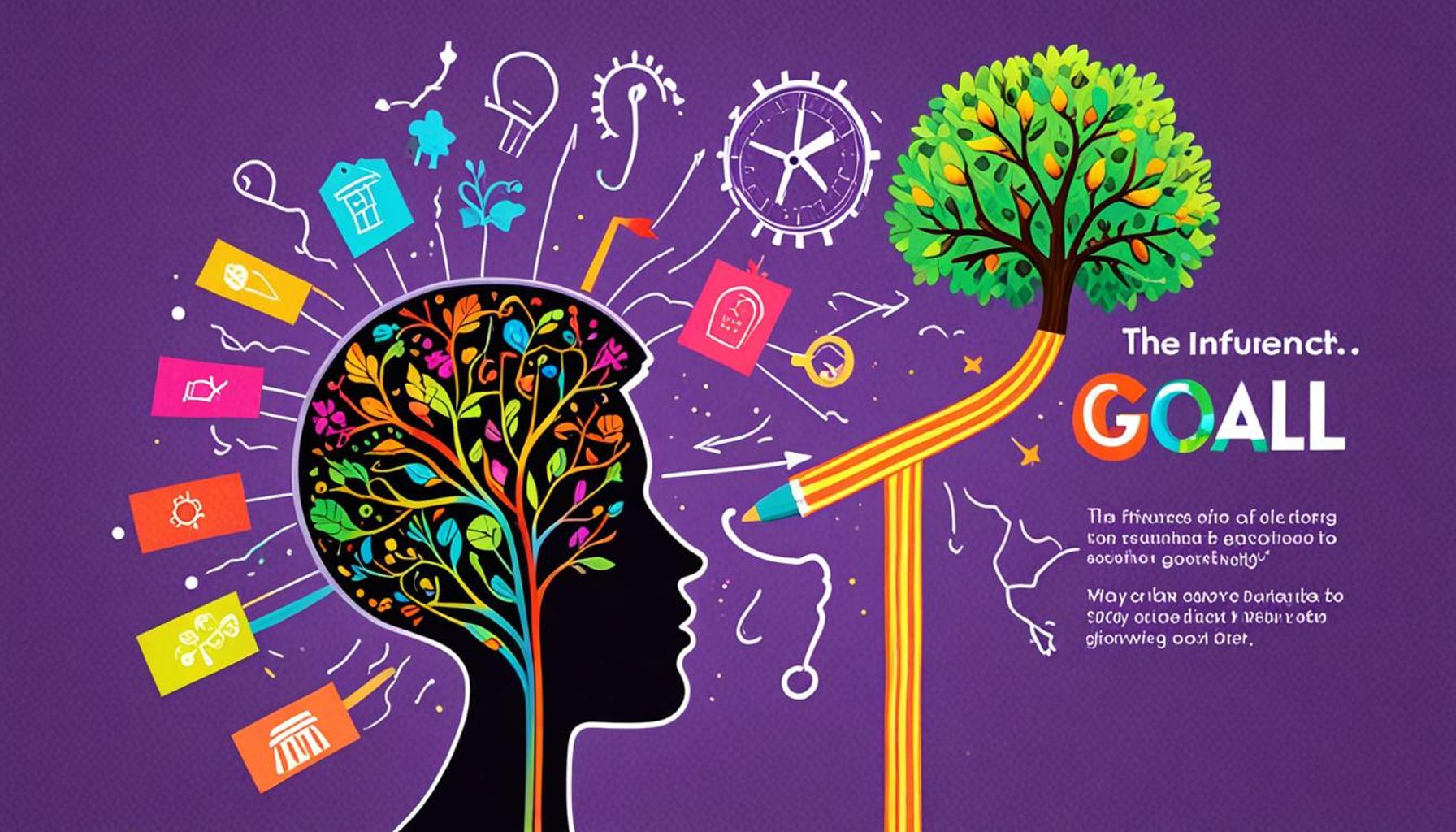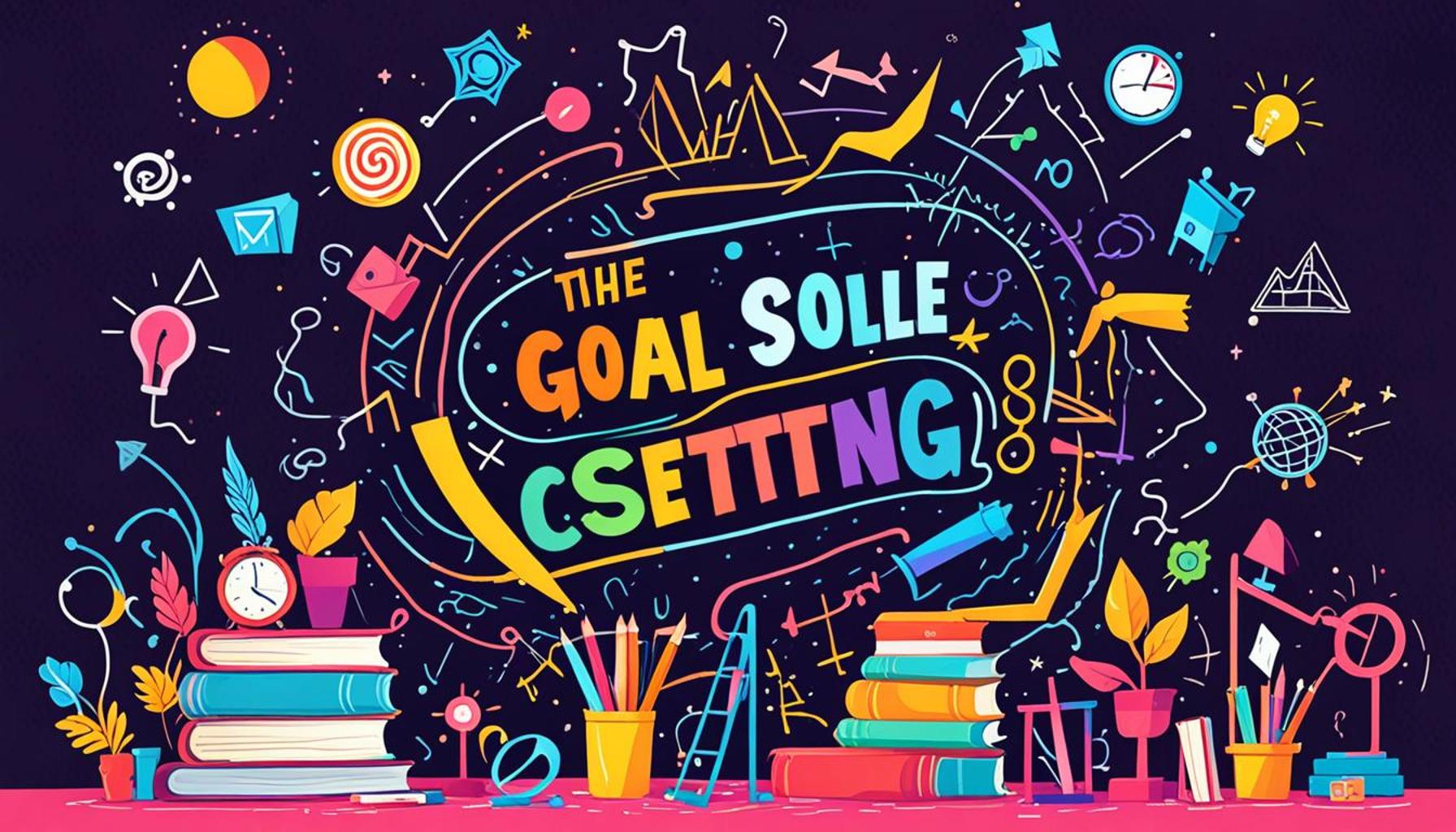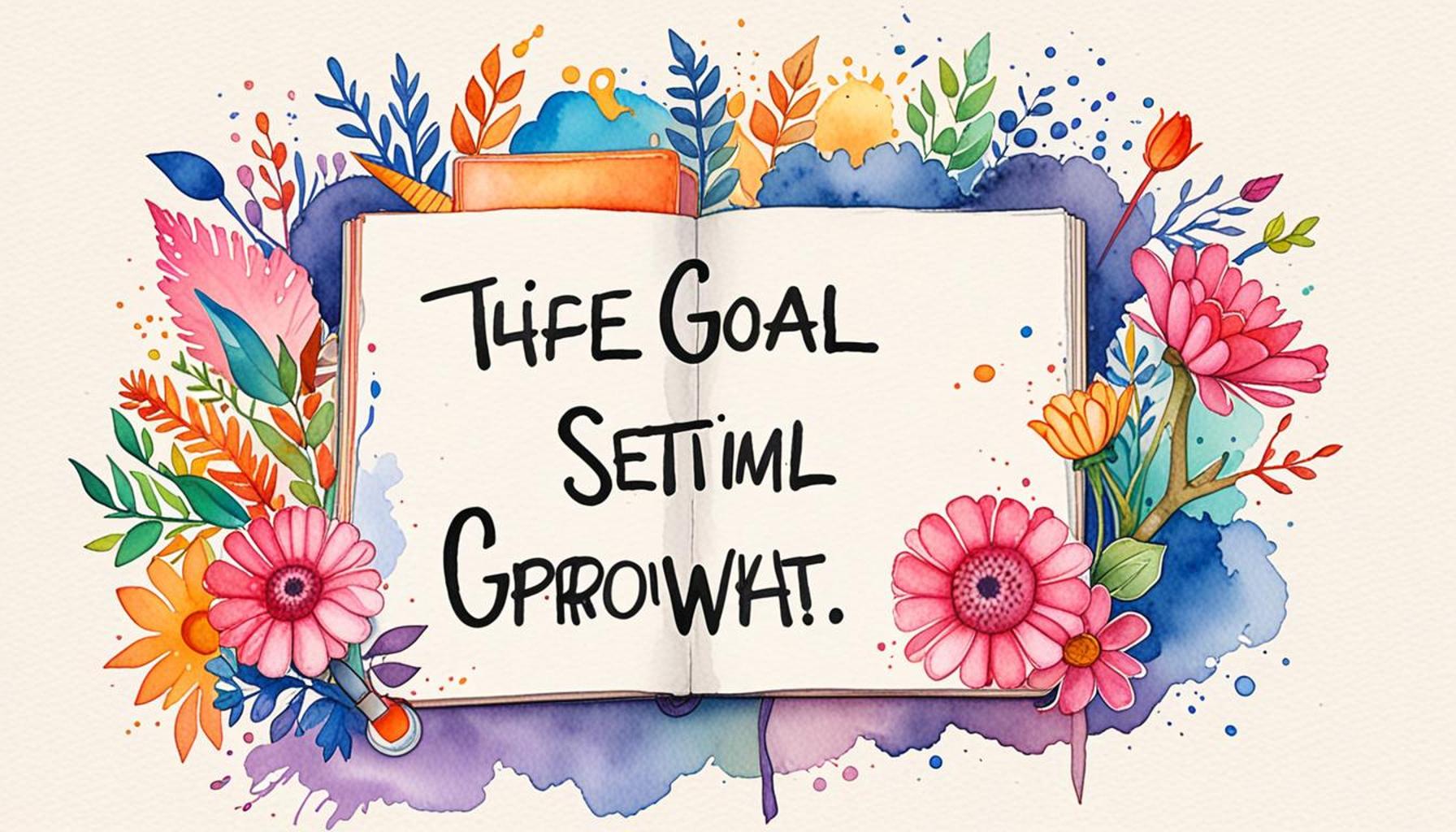The influence of goal setting on building a sustainable growth mindset

Understanding the Connection Between Goal Setting and Growth Mindset
Setting goals is more than just a motivational tool; it’s a crucial element in cultivating a sustainable growth mindset. In Nigeria, where aspiration meets opportunity, the way individuals approach their objectives can significantly impact their personal and professional development. In a country characterized by its rich cultural diversity and dynamic economy, the nuances of goal setting are particularly pertinent.
When effectively implemented, goal setting can lead to remarkable outcomes through:
- Increased clarity: Clear goals define direction and help prioritize actions. For instance, a young Nigerian entrepreneur might set a specific goal to increase her startup’s revenue by 20% in the next year. This measurable target allows her to focus her efforts on marketing strategies and customer engagement.
- Enhanced motivation: Achieving milestones creates a sense of accomplishment that fuels further efforts. Imagine a student who aims to graduate with honors. Each test and assignment completed successfully builds momentum and inspires her to keep striving for academic excellence, reinforcing her belief in her capabilities.
- Improvement in resilience: Setting challenges prepares individuals to face setbacks with a constructive attitude. A farmer in Nigeria, for example, may struggle with crop loss due to unexpected weather changes. However, having set the goal of diversifying his crops helps him adapt to such challenges and seek alternative solutions, ultimately strengthening his resilience.
A sustainable growth mindset enables individuals to embrace challenges and learn from failures, ultimately fostering innovation and adaptability. As Nigeria’s economy continues to evolve, understanding this intricate relationship becomes imperative for success. The ability to pivot and adjust strategies in the face of adversity is crucial in Nigeria’s fast-paced entrepreneurial landscape.
Examples abound, from local entrepreneurs who forge ahead despite obstacles to students who persist in their academic endeavors. For instance, many tech startups in Lagos have faced entry barriers due to funding challenges; yet, their dedicated goal-setting practices guide them toward securing investment and scaling their businesses. Similarly, students participating in STEM programs showcase a remarkable tenacity by setting educational goals that push them out of their comfort zones.
By diving deeper into the principles of goal setting and embracing a growth mindset, individuals can unlock their full potential. This involves not only recognizing one’s aspirations but also developing clear action plans to achieve them. In this exploration, we will uncover strategies for effective goal setting while examining how these practices contribute to enduring mental growth. Let’s delve into the influence of these concepts to cultivate an empowered mindset, one that thrives on challenges and emerges stronger from setbacks.
CHECK OUT: Click here to explore more
Strategies for Effective Goal Setting
To fully appreciate how goal setting influences the development of a sustainable growth mindset, it’s essential to explore practical strategies that individuals can adopt. In Nigeria, where aspirations often meet challenges, understanding the mechanics of effective goal setting can become a transformative tool. Here are some strategies that can help individuals harness the power of goal setting:
- SMART Goals: Implementing the SMART framework—Specific, Measurable, Achievable, Relevant, and Time-bound—can significantly elevate the goal-setting process. For example, a university student in Abuja keen on excelling in engineering can set a SMART goal of obtaining a GPA of 4.0 by the end of the academic year. This structured approach leads to greater clarity and focus on the actions needed to succeed.
- Incremental Challenges: Setting challenges that incrementally push boundaries allows individuals to build confidence while maintaining a growth mindset. A local artisan may start by producing five handicrafts per week, then aim for ten, and subsequently develop skills to expand into new product lines. Each small victory reinforces belief in one’s abilities, making the leap toward larger goals less daunting.
- Visual Goal Tracking: Utilizing visual aids—such as charts, vision boards, or digital apps—can enhance commitment to goals. For instance, a young Nigerian athlete could create a visual representation of her training milestones, fostering a clearer connection between daily efforts and long-term aspirations. This practice not only motivates but also creates a sense of accountability.
- Regular Reflection: Establishing a routine for reflection on progress is vital in the goal-setting cycle. By evaluating what works and what doesn’t, individuals can adjust strategies to stay aligned with their growth objectives. A business professional in Lagos might review quarterly performance metrics to assess whether they are on track to meet their annual financial targets, allowing for timely pivots when necessary.
These strategies illustrate that goal setting is not merely about defining end points; it involves a dynamic process of learning, adjusting, and growing. As individuals in Nigeria adopt these practices, they create a fertile environment for a sustainable growth mindset. The cultivation of such a mindset is essential in a society where innovation and adaptability are critical in navigating socioeconomic challenges.
Furthermore, aligning personal and professional goals with a broader community context can deepen commitment to one’s aspirations. In Nigeria, where collective progress is often prioritized, goals that contribute to community development—like mentoring youth or engaging in social entrepreneurship—can also promote individual growth and resilience. The synergy between personal ambition and communal growth embodies the essence of a sustainable growth mindset.
Ultimately, the intersection of effective goal setting and a growth mindset lays the groundwork for individuals to not only pursue their dreams but to thrive despite the uncertainties. As we explore further, we will uncover how incorporating these goal-setting techniques can lead to lasting benefits, propelling individuals toward personal and professional success in an ever-evolving landscape.
The Influence of Goal Setting on Building a Sustainable Growth Mindset
As we delve deeper into the relationship between goal setting and a sustainable growth mindset, it is essential to understand how these two elements interact to foster personal and professional development. Goals serve as a roadmap, guiding individuals toward their aspirations while simultaneously nurturing resilience and adaptability.
Setting specific, measurable, achievable, relevant, and time-bound (SMART) goals creates a sense of direction. This clarity not only enhances focus but also encourages a proactive approach to challenges. As individuals pursue these goals, they develop a habit of learning from experiences, thereby reinforcing the idea that intelligence and abilities can improve over time through effort and persistence.
Moreover, establishing short-term objectives contributes significantly to building momentum. Achieving smaller milestones provides immediate feedback and validation, which can increase motivation and bolster self-efficacy. This incremental progress is crucial in cultivating a long-term growth mindset, as it teaches individuals to view challenges as opportunities for learning rather than obstacles to success.
Incorporating regular reflection and adjustment of goals is another essential aspect. This practice allows individuals to remain flexible and responsive to new information and changing circumstances, ultimately leading to a more resilient and sustainable mindset. Embracing failures as learning experiences through this lens encourages ongoing improvement and reinforces the belief that growth is a continual process.
To understand how goal setting influences a growth mindset, it is beneficial to examine practical applications in various contexts. For instance, in educational settings, students who engage in goal-setting exercises often exhibit improved academic performance and greater motivation. Similarly, in corporate environments, team-oriented goals can foster collaboration and innovation, enhancing overall productivity.
| Category | Advantages |
|---|---|
| Goal Clarity | Provides direction, enabling focused efforts and decision-making. |
| Incremental Success | Encourages motivation through small wins, reinforcing belief in self-improvement. |
Ultimately, understanding the profound connection between goal setting and a growth mindset can transform the way individuals approach their personal and professional lives. Therefore, embracing these principles is vital for anyone striving for lasting success and fulfillment.
RECOMMENDED: Check out this similar article
Building Resilience Through Goal Setting
As individuals engage in goal setting, they also develop resilience, a core component of a sustainable growth mindset. Resilience allows individuals to navigate difficulties and setbacks, transforming challenges into opportunities for learning and growth. In the Nigerian context, where economic fluctuations and societal constraints can impact personal ambitions, cultivating resilience through goal-setting practices becomes crucial.
One key aspect of fostering resilience is establishing failure-friendly goals. Instead of solely focusing on success as the benchmark, individuals can set goals that recognize the role of setbacks in the learning process. For instance, a startup entrepreneur in Abuja may set a goal to launch a minimum viable product (MVP) within three months. If the launch doesn’t gain traction as anticipated, the entrepreneur can use this experience to reassess their value proposition, refine their marketing strategies, and ultimately pivot towards their next objective with newfound insights. This approach shifts focus from fearing failure to embracing it as a valuable aspect of growth.
Additionally, leveraging support systems can enhance the impact of goal setting on building a growth mindset. Collaborating with peers, mentors, and community members can provide crucial motivation and constructive feedback. In Nigeria, where communal relationships often underpin social dynamics, joining networking groups or professional associations can significantly bolster the effectiveness of personal goals. For example, a group of young professionals focused on improving their skills through shared learning experiences can foster a healthier environment that embraces both individual and collective growth.
Furthermore, integrating mindfulness practices into goal-setting routines helps individuals remain present and grounded in their pursuits. Mindfulness encourages self-awareness and emotional regulation, enabling individuals to respond thoughtfully to challenges rather than react impulsively. A student preparing for exams can pair their academic goals with mindfulness exercises—such as meditation or journaling—helping them stay focused and maintain a balanced perspective on progress and achievement. This practice further reinforces the notion that the journey toward achieving goals is just as important as the goals themselves.
Incorporating technology into goal-setting frameworks can also provide innovative avenues for developing a sustainable growth mindset. Apps that allow for tracking progress, setting reminders, and connecting with goal-oriented communities not only enhance motivation but also foster a culture of accountability. For example, a software developer could use platforms tailored to development goals to monitor project milestones while simultaneously engaging with other developers. This interconnectedness enables insights sharing and mutual learning—key ingredients in a resilient growth mindset.
In a rapidly changing world, integrating these elements into goal-setting practices can profoundly influence the establishment of a growth mindset. Individuals who focus on resilience, community support, mindfulness, and technological advancement are not just setting themselves up for individual success; they are actively contributing to a culture of continuous improvement and innovation within Nigeria. Thus, as the nation strives toward greatness, aligning personal aspirations with these foundational concepts can significantly impact the landscape of personal and community growth, ultimately paving the way for a brighter future.
YOU MAY ALSO LIKE: Read read another article
Concluding Thoughts on Goal Setting and Growth Mindset
In summary, goal setting plays a pivotal role in shaping a sustainable growth mindset, especially within the unique socio-economic landscape of Nigeria. By establishing clear, achievable objectives, individuals are not only motivated to pursue their aspirations but are also equipped to cultivate resilience and adaptability in the face of obstacles. The integration of failure-friendly goals allows for a more holistic understanding of success—one that embraces learning and innovation as vital components of personal development.
Moreover, tapping into support systems enhances the effectiveness of goal-setting practices. Community bonds, mentorship, and collaborative efforts serve to reinforce individual ambitions, creating a shared momentum for growth that is essential in a country rife with challenges and opportunities. By fostering environments rooted in collaboration and mutual learning, Nigerians can transform their diverse talents into engines of progress.
Additionally, the infusion of mindfulness and technology into goal setting further serves to enrich the journey toward personal and collective success. Mindfulness nurtures self-awareness and emotional intelligence, essential tools for navigating the complexities of both personal and professional realms. Technology, on the other hand, provides innovative frameworks for tracking progress, sharing insights, and connecting with like-minded individuals, reinforcing a culture of accountability and continuous improvement.
As Nigeria continues to evolve, embracing these principles of goal setting will not only empower individuals but will also contribute to a broader narrative of sustainable growth and resilience. In the pursuit of excellence, let us remember that every goal set is a step towards carving a future that is brighter, more innovative, and interlinked—a future where success is defined not just by attainment, but by the journey of growth itself.


